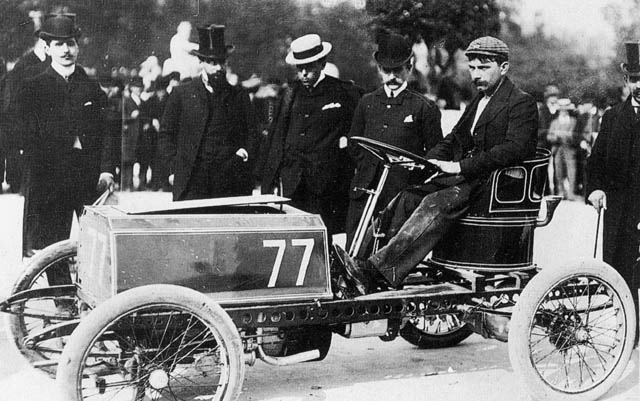1903 Paris to Madrid – The Race to Death
By Charles Jarrott
PARIS-BORDEAUX! The very name conjures up old memories of struggles, grim and fierce, and thrilling fights amongst those whose names are now almost forgotten, but who, on the old Paris-Bordeaux road, struggled in years past for the title of ‘King of the Road’.
It all began in the days before motors were thought of and when the cycle held its own as the most rapid form of road vehicle. Mills, Holbein, Huret, Lesna, Linton – great riders of their day – struggled hard to win the great road race of the year, Paris to Bordeaux. Later, De Knyff, Charron, Girardot, Farman, Fournier and others whose names are quite forgotten, fought the same battles over the same long, straight stretches. Their course was fleet and the pace was fierce, but it was all on the same old fascinating road, and, as a grand finale, Paris to Bordeaux was the first, and, as it eventually turned out, the last stage of the last great inter-country race, Paris to Madrid.
No Subscription? You’re missing out
Get immediate ad-free access to all our premium content.
Get Started



